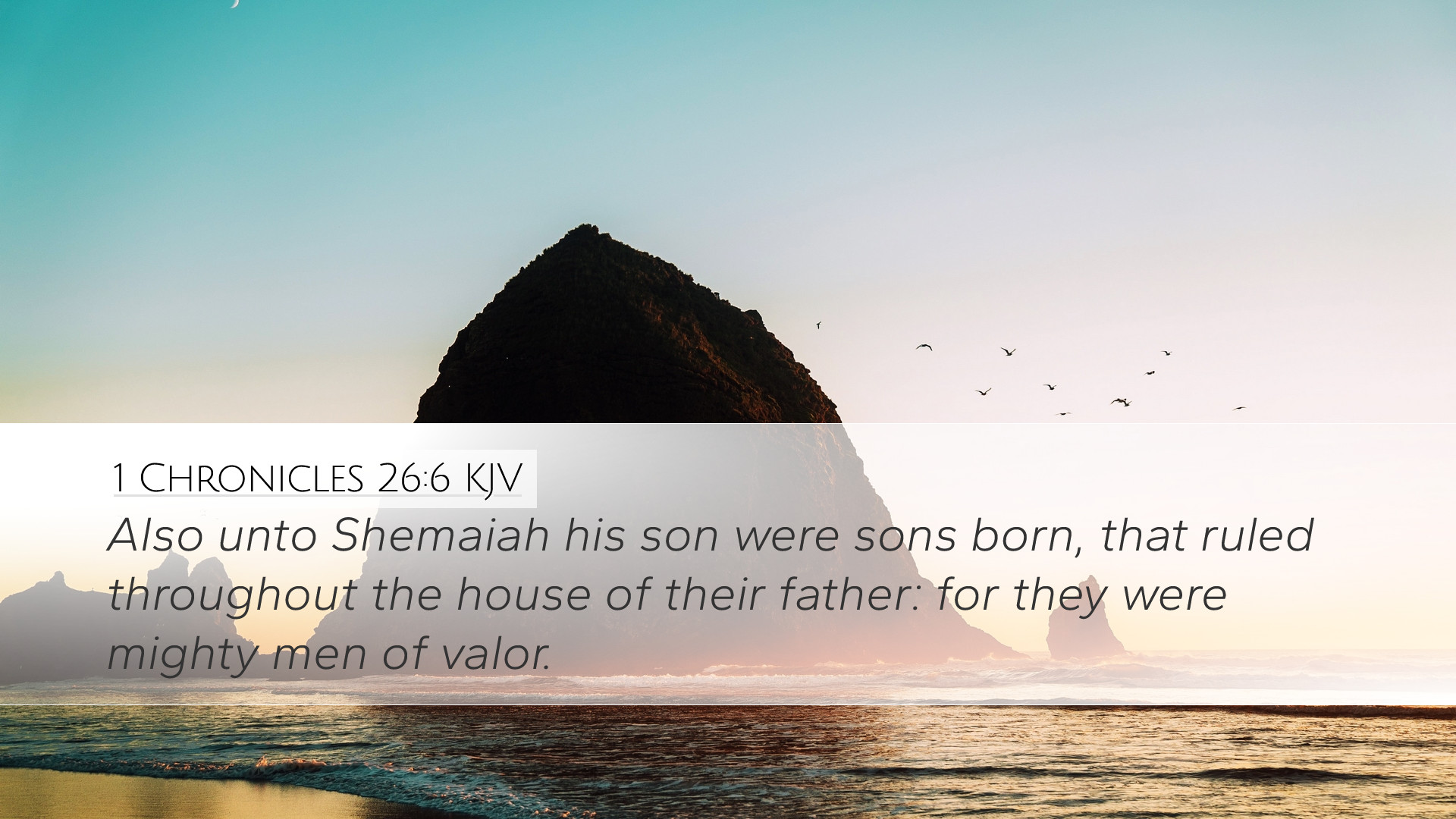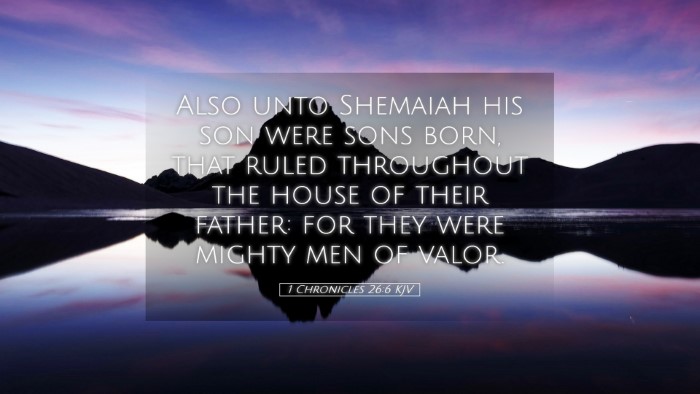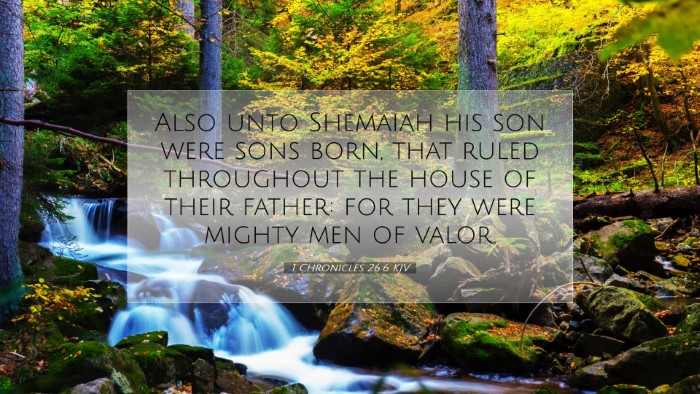Commentary on 1 Chronicles 26:6
Verse: "And the sons of Obededom; Shemaiah the firstborn, Jehozabad the second, Joah the third, and Sacar the fourth, and Nethanel the fifth."
Introduction
1 Chronicles 26:6 presents a genealogical record within the broader context of the organization of the Levites and their duties in service to the temple. This verse specifically mentions the sons of Obededom, highlighting the significance of familial roles in temple service.
Theological Significance
The enumeration of names in this verse underlines the theme of God’s election of specific individuals or families for His service. The lineage of Obededom reflects an important aspect of the Jewish faith and worship, serving as a reminder of God’s providence in raising up faithful servants.
Contextual Analysis
This verse finds its context within the broader genealogical lists found in 1 Chronicles, which are critical for understanding the Levitical priesthood and its organization. The role of the Levites was vital in maintaining the worship of God, and their careful record-keeping illustrates the importance of order in divine service.
Historical Insights
Obededom was a Gittite who became associated with the Ark of the Covenant when it was housed in his home following the death of Uzzah (2 Samuel 6:10-11). His family's subsequent service in the temple exemplifies how God can transform a person’s history into a story of honor and responsibility.
Matthew Henry notes that Obededom's family was likely chosen due to their demonstrated faithfulness and dedication, making them suitable for the sacred duties required in the temple.
Character Analysis of Obededom's Sons
Each son mentioned represents a successive generation of devotion:
- Shemaiah: The firstborn, he likely held a place of leadership within the family and community.
- Jehozabad: His name signifies "Yahweh has bestowed," indicating the favor of God upon him.
- Joah: Meaning "Yahweh is a brother," indicating a close relationship with God as a source of support.
- Sacar: This name can be interpreted as "reward," suggesting the blessings of service to God.
- Nethanel: Meaning "gift of God," reflecting the divine nature of service as a sacred gift.
The diversification of names suggests a variety of gifts and responsibilities, emphasizing that in God’s service, variety enriches unity.
Lessons for Faith Communities
This verse teaches the value of legacy and the importance of nurturing faith within families. Every person, regardless of their background, can become a servant of God, as demonstrated by Obededom's lineage.
Furthermore, the passage encourages modern congregations to recognize and cultivate the potential within their own families and communities. The duty of worship is one built upon faithfulness and dedication passed down through generations.
Reflection on Service and Calling
The sons of Obededom remind us that service in God’s house is a noble calling that carries with it both privilege and responsibility. It's essential to view service not merely as practical duties but as a sacred vocation.
Pastors and church leaders can reflect on the importance of recognizing the gifts of their congregants, similar to how each son had a specific role. Effective ministry thrives on identifying and nurturing these gifts.
Conclusion
1 Chronicles 26:6 encapsulates the centrality of service in the life of faith. By trusting in God’s direction and embracing the roles He assigns us, we can enrich our worship experiences and ensure that our legacies of faith are handed down faithfully.
The insights gleaned from the lives of Obededom and his sons encourage contemporary believers to embrace their roles within the church and prepare to serve, just as the descendants of Obededom did in their time.


